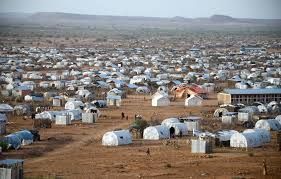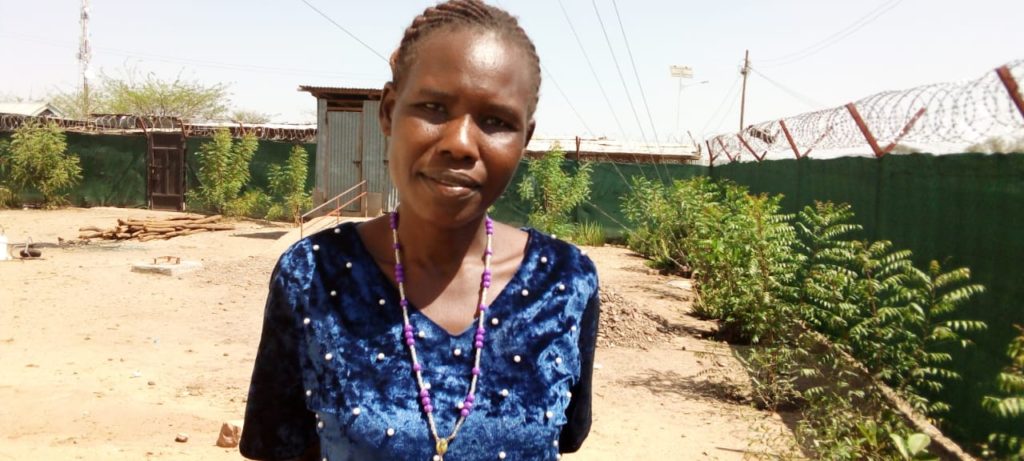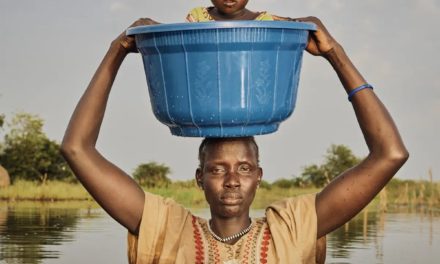
Closure of Kakuma, Dadaab refugee camps, a RECIPE for disaster.

“Home sweet home I can go myself, but where am I going to start from?” says Chelia Rose, a South Sudanese refugee in Kakuma camp.
“Before I came to Kenya, I was living with my both parents in South Sudan. Then after sometime when I was eight-years-old, my aunt came and took me to live with her. So, I stayed at her place for like two years and then the war broke out. I ran with her. My parents ran their way and we also ran our way.”
These are the words of Chelia Rose, a South Sudanese living at Kakuma refugee camp in Kenya. The 29-year-old mother of one has lived at the camp since 2002.
“I just heard my parents went to the border of Congo and South Sudan and we went somewhere in the middle and then we went back home. So, before we stayed long, another war started and we went to a place called Narus,” Rose says.
While at Narus, a South Sudan town 25 kilometres from the Kenyan border, tribal war broke out forcing them to cross to Kenya. Rose and her aunt arrived at Lokichogio Reception Centre where they stayed for a week before being transferred to Kakuma refugee camp? Months later she was enrolled in a primary school within the area.
After her Kenya Certificate of Primary Examinations (KCPE), she got a scholarship to study in Uganda. While there, her aunt got a private resettlement and resettled to Australia with her children.
“When I communicated to my aunt in Australia, because that was the only person I knew, she told me to go back to Kakuma. I came back here in December 2010 after my national examinations in Uganda and started a new life by myself,” Rose tells The Insider, saying has not been in touch with her parents since they separated.
Thoughts on closure of Kakuma refugees Camp is a painful imagination. Rose who was born in a place called Maridi County in Western Equatorial state says she doesn’t know how to trace her relatives who come from Eastern Equatoria. Rose cannot remember her hometown since she was barely eight.
“Going back home means you are going to start from zero. Okay at the end of the day home sweet home I can go myself but where am I going to start from?” Rose demanded.
“If I don’t even know where my parents are, how will I know that I have a plot in South Sudan and where will I start from?” she added.
On 24th March, 2021 Interior Cabinet Secretary Fred Matiang’i, issued the United Nations High Commissioner for Refugees (UNHCR) with a fourteen-day ultimatum on closure of Dadaab and Kakuma refugee camps. Matiang’i said there is no room for further negotiations.
Rose says it is going to be difficult to resettle in South Sudan if the Kenyan government implements the 14 days ultimatum for the closure of Dadaab and Kakuma refugee camps.
“Maybe to others who are like me there’s no direction that we are going to take. If they take me to Maridi I don’t even remember the route going to that place where I used to stay.” She says.
Rose appeals to the Kenyan government to reconsider their decision to close the camps because she would struggle to survive in South Sudan.
“If they take me to any place in Kenya, I’ll live better but if they take me out of Kenya, I don’t know how I’m going to live because it’s very difficult to me… It’s very painful if they really do the implementation and if it happens it will harm and hurt some of us. “Rose stressed.
In the same camp stays Gatbel Koang, a South Sudanese who was born and raised in South Sudan. Koang lived his childhood but was orphaned by the long civil war that forced him to flee to Kenya.
“I was born in the time when there was bitter war in South Sudan, during that time conflict was part of our lives, the music that we used to hear was bomb and gunfire in the country. In the process of liberation, I lost my father and continued living with my mom but I also later lost her but the conflict was still there.” He narrates.
The 27-year-old Koang also schooled in Kenya and currently has an incentive job with an organization within Turkana. To him, Kakuma camp is the only peaceful home he knows of.
“It is very unfortunate for me that I am hearing about the closure of the camp because I feel like leaving the place that I call home which is Kakuma. It will be very tough for me because I have no family to go back to,” Koang says.
Desmond Ogubi, Regional Programs Coordinator for the Wibena Impact Rwanda, says refugees living at the camps have learnt to make a living from resources accessible to them. He adds that closing the camps would make their security and social lives more vulnerable.
“Closing a camp like Dadaad means you are pushing back over a hundred thousand people. They had run from a country where there is war. When they go back, they’ll feel like outcasts and those people are actually likely to attack them because they ran away when there was war.” Ogubi told The Insider, noting that there are so much humanitarian rights that have to be put in consideration before creating such a declaration.
“Where are they going to get food from when they come back because most of them, their homes, have been attacked. When they go back what is their sustenance, their medication and their education?” he demanded.
“These are people who accepted that there was chaos where they came from and are here trying to do with any type of resource available through help of well-wishers and even the government,” Adds Ogubi, adding that the UNHCR does not have the capacity to take refugees to their countries of origin.
In a statement Thursday, the Kenya National Commission on Human Rights (KNCHR), maintained that security policies and practices must be consistent with human rights standards and principles in keeping with Article 238 (2) b of the constitution which provides that; National security shall be pursued in compliance with the law and with utmost respect for the rule of law, democracy, human rights and fundamental freedoms.
“Kenya must uphold all its obligations under national, regional and international human rights law, especially the principle of non-refoulement which protects asylum seekers and refugees from being returned to places where their lives or freedoms could be threatened,” the statement partly reads.
The principle of non-refoulement is core to the international refugee protection regime and is a customary norm of international law. Kenya is a signatory to this convention.
There are 508,033 refugees living in Kakuma, Dadaab refugee camps and 16 percent living in urban centres in Kenya such as Nairobi, according to the United Nations High Commission for Refugees (UNHCHR) end of January 2021 tally. According to the UNHCR, the majority of refugees and asylum seekers in Kenya originate from Somalia (54%) and South Sudanese (24.6%).
The Refugees International Senior Advocate for Women and Girls Devon Cone says the move to abruptly close the camps could uproot almost half a million people and send them to countries that are nearly unsafe.
“Giving UNHCR a two-week ultimatum to close the camps is a recipe for chaos and disaster.” says the organisations’ statement on Thursday.






















Recent Comments